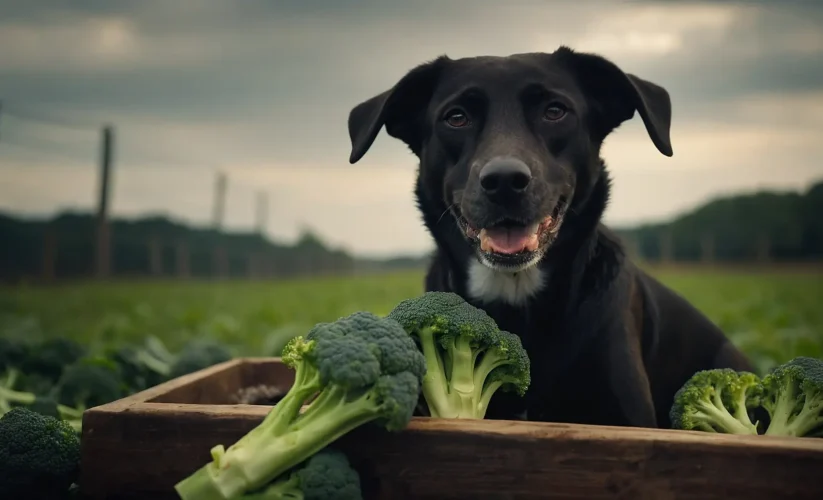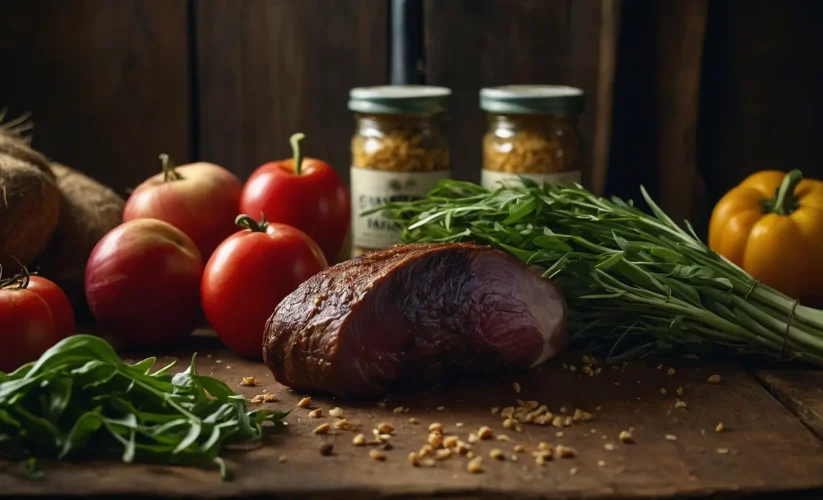Can Dogs Eat Brussels Sprouts?

Welcome to our latest blog post, where we delve into a question that’s on the minds of many dog owners: Can dogs eat Brussels sprouts? As a seasoned dog blogger and a devoted dog parent, I understand the importance of knowing what’s safe and what’s not when it comes to our furry friends’ diets. In this post, we’ll explore the nutritional benefits and potential risks of feeding Brussels sprouts to dogs. We’ll also compare them to other vegetables like asparagus and broccoli, to give you a broader perspective on what’s good for your pooch. Whether you’re a new dog owner or an experienced one, this guide will provide you with the essential information you need to make informed decisions about your dog’s diet. So, let’s dig in and find out if Brussels sprouts are a canine-approved veggie!
Is Brussels Sprouts Good for Dogs?
Brussels sprouts, those small, leafy green vegetables, are often a subject of debate at the dinner table. But what about for dogs? The good news is that Brussels sprouts are indeed beneficial for dogs, in moderation. These veggies are packed with essential nutrients that can contribute positively to your dog’s health.
Firstly, Brussels sprouts are a great source of dietary fiber, which is crucial for maintaining a healthy digestive system in dogs. Fiber aids in digestion and helps prevent constipation, ensuring that your dog’s gastrointestinal tract is functioning smoothly. Additionally, these little greens are rich in antioxidants, particularly vitamins K and C. Vitamin K is essential for healthy bone development and blood clotting, while Vitamin C boosts the immune system, helping your dog fend off illnesses.
Brussels sprouts also contain a variety of other nutrients, such as manganese, potassium, and folate. Manganese plays a role in energy production and bone formation, potassium is vital for heart health, and folate supports cell growth and metabolism. Moreover, they’re low in calories, making them a healthy snack option for dogs, especially those on a weight management plan.
However, the benefits of Brussels sprouts come with a caveat. They should be given to dogs in small quantities because their high fiber content can cause digestive upset if consumed in large amounts. It’s also important to cook them properly – steamed or boiled without any added salt, spices, or oils – to make them easier for dogs to digest.
Is Brussels Sprouts Bad for Dogs?
While Brussels sprouts offer several health benefits, they can also have some drawbacks for dogs if not given in appropriate amounts. The primary concern with Brussels sprouts is the possibility of causing gastrointestinal distress.
The high fiber content in Brussels sprouts, while beneficial in small quantities, can lead to an upset stomach, especially in dogs with sensitive digestive systems. Symptoms like gas, diarrhea, or vomiting can occur if a dog eats too many Brussels sprouts. This is mainly due to the presence of a compound called isothiocyanate, which is responsible for stimulating the digestive system and can lead to an increase in gas production.
Another factor to consider is the preparation of the Brussels sprouts. As mentioned, they should be cooked without any added ingredients like salt, garlic, or onions, which are harmful to dogs. Raw Brussels sprouts are also not recommended as they can be tough for dogs to digest, potentially leading to gastrointestinal blockages.
Furthermore, it’s essential to introduce Brussels sprouts into your dog’s diet gradually. Starting with a small amount allows you to monitor your dog’s reaction and ensure that they don’t have any adverse effects. It’s also important to keep in mind the size of your dog. Smaller breeds may be more sensitive to even small quantities of high-fiber foods like Brussels sprouts.

Are Other Vegetables Safe For Dogs?
When considering vegetables for your dog’s diet, it’s helpful to know which ones are safe and beneficial, aside from Brussels sprouts. Two common vegetables that dog owners often ponder about are asparagus and broccoli.
Asparagus, like Brussels sprouts, is safe for dogs in moderation. It’s a nutritious vegetable that provides a good source of vitamins A, B, and C, along with fiber and folate. However, asparagus stalks are quite tough and can be difficult for dogs to chew and digest. Therefore, it’s best to serve asparagus cooked and cut into bite-sized pieces to avoid choking hazards and digestive issues.
Broccoli is another excellent vegetable that can be beneficial for dogs. It’s high in fiber and vitamin C and low in fat. However, broccoli florets contain isothiocyanates, the same compound found in Brussels sprouts that can cause gastric irritation in some dogs. Therefore, broccoli should be given in very small quantities, particularly to dogs who are prone to digestive upset.
Both asparagus and broccoli should be prepared simply, without any added oils, spices, or seasonings. It’s also essential to avoid feeding dogs the cooked leftovers of these vegetables if they’ve been prepared with ingredients that might be harmful to them.
Final Thoughts
In conclusion, Brussels sprouts can be a healthy and nutritious addition to your dog’s diet when given in moderation. They offer various health benefits, including essential vitamins, minerals, and fiber. However, it’s crucial to be aware of their high fiber content and the potential for gastrointestinal upset. When introducing any new food, including Brussels sprouts, asparagus, or broccoli, do so gradually and in small quantities to monitor how your dog reacts.
Always remember that while vegetables can be a healthy supplement, they should not replace a balanced, meat-based diet that meets all of your dog’s nutritional needs. As with any dietary changes or concerns, consulting with your veterinarian is the best course of action. They can provide tailored advice based on your dog’s health, breed, and dietary requirements.
Feeding your dog a variety of safe and healthy foods can contribute to their overall well-being and happiness. So, the next time you’re enjoying some Brussels sprouts, feel free to share a small, well-cooked piece with your furry friend!










